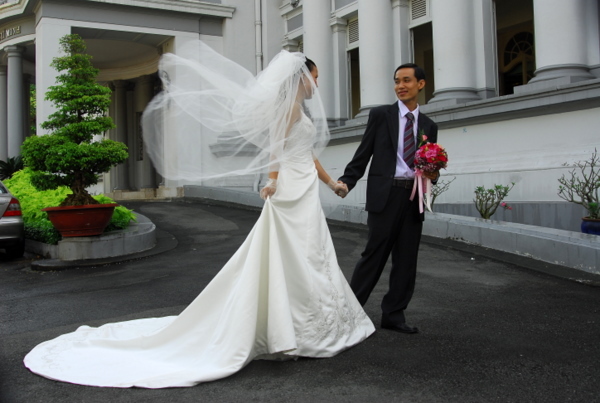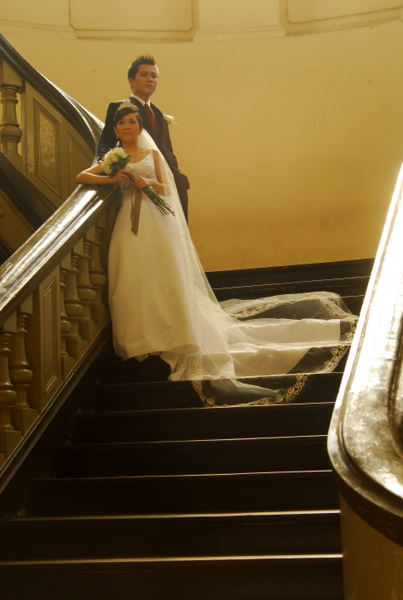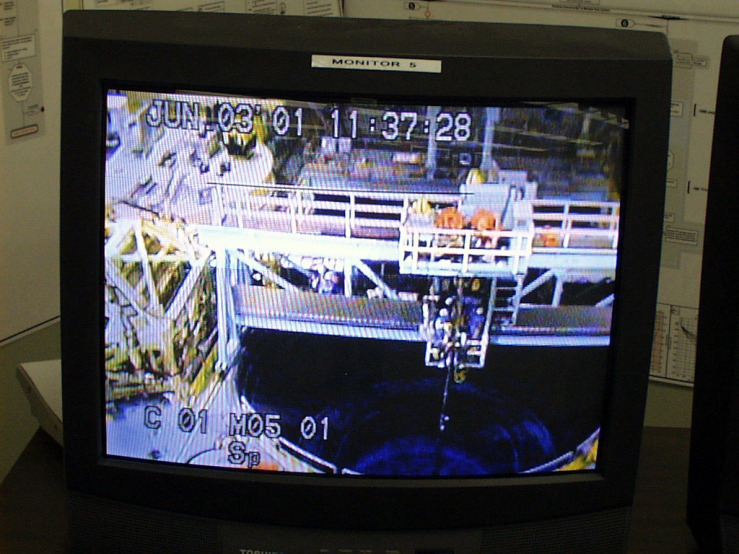
Greetings,
Here are my final raw Sapa notes.
I am sitting in a V street stall for breakfast. A sticky rice pancake filled with onions. Covered in a brown curled fried garnish.
I am one eyed blind to the suspicious woman RICH in her boredom, this cold mountain town as she bosses boys and girls around inside green vegetables, working the wok, dancing her empty eye on a Chinese businessman wearing filthy dress shoes recovering from a night of drink and girls and black by the “Hello” of a one-eyed H’mong women offering me her a hand-made key trinket, her labor during dark night. Using her hands to embroider her daylight hope. Transitions.
Across the way a young boy plays with his plastic toys; action man, a green bulldozer, a sharp knife is rusty near the handle of lost youth. He tries to figure it out, sitting alone while his mother prowls the market seeking vegetables and his father bangs his mistress. All the pieces fall into place.
+
Around the Sapa traffic circle - near the church, above the tented park-like commercial zone under blue tarps where V sell kitsch are 16 motorcycle honchos. Easy rider. They are waiting for: tourists. Any tourists. Some tourists. One tourist. Maybe a H’mong woman with her heavy basket or infant on her back needing transport back to her village or at least within walking distance after a day of selling, buying, visiting friends. Maybe. Waiting.
A thick white fog rolls in, obscuring all vision. Visibility drops to perhaps 200’ in the mystery mist. A shroud shout.
“Hustlers, Inc.” - you are the mark. Anytime, anyplace, anywhere.
Get a massage. Looking for for the totality of phenomena, this completeness.
+
From the 4th floor balcony I can see the yellow elementary boarding school building. All the elementary schools here are a thick yellow. The red flag with the yellow star is silent.
The Educational drum at the school plays a long deep resonating thunder sound. It is large and stretched tight. Remember all the amazing drums at the Ethnology Museum? Drums have been here for centuries. Essential for communicating long distance. American Indian connections.
The drummer pounds out the message. Thum! Thum! Thum! Three heavy beats. Vibrations echo across open space, curl around the lake and rise toward eastern mountains. It calls all the younger members of the tribe. All the children gather.
It is the season way in the mountains; plant, create art, make children, work in fields, a gathering (Black, White, Flower H’Mong, Red Dzao, Tay. All.)
Community.
Spirit. Storytellers. Animism.
Integrity. Authenticity. Nature is your inspiration. You are living in an amazing art museum. Everyone is an artist.
Cheap “plastic” Chinese material made on machines vs. the natural fibers.
“The Cloth Sellers.” - I hang out in the old fabric area of the market. The H’mong and Red Dzao women in the cloth market tell me they walk in from their villages and stay in Sapa for 3-4 days. If they don’t sell they return to their village.
+
“Hello Chicken Soup.” - goes the market women’s mantra song as tables wait for customers. Basic English is all you need to sell chicken soup. It is served with long white noodles. I take my young H’mong friends there everyday. Delicious.
This market reality. The food women work from 5 a.m. until 8 p.m. seven days a week. Busy sellers, shoppers, locals, a few tourists with their guides or in pairs, comfortable with market food come to eat.
What is the profit margin? Food cost. Labor cost?
I see two foreigners who live here.
One is Frenchman in his mid-20’s with a brown ponytail. He speaks fluent H’mong. He stands on the cement staircase between the cloth market and sprawling food tables. He stares at people eating. I never saw him smile. Sa tells me he was married to a local H’mong girl, 19. She had a baby. Two years ago he left her. He pays support. Now he is chasing a Red Dzao girl. Maybe he works for an International Relations business.
A thin foreign man in his 20’s wears large framed glasses and eats in a V place nearby. He carries a worn knapsack and speaks the language. He walks fast. He has bought greens and tofu. He goes into an all-purpose V shop for cooking oil and staples. He leaves and walks fast over broken disjointed concrete blocks covering the central sewage system. If sanitation and hygiene concerns foreigners they’d eat in a “real” restaurant on main street. There is only one main street.
The Red Dzao woman are really persistent sellers. “Buy from me!” Repeat. Repeat.
They never give up. Mo, my 10-year old friend gave a good lesson in how to handle these sellers. We were somewhere, maybe the street, the plaza, eating.
“When the woman ask you to buy something, don’t say ‘maybe,’ or ‘later,’ or ‘not now,’ or ‘tomorrow.’ They will remember you and tomorrow they will tell you, ‘you said tomorrow!’”
"Just say, 'I have no money.'"
“Thanks for the knowledge.”
“Yes,” she said, “I don’t know but I understand.”
+
The exploitation of local people in Sapa. Vietnamese control the tour groups.
Local guides make $5 a day. All the money goes to Vietnamese businesses.
No autonomy for the minority hill tribe people.
Tourists and travelers need to meet and arrange individual Sapa travel plans. Independent. This way they support the local people. Lodging is controlled by the Vietnamese tour companies. Travelers need to be made aware of this reality.
Most foreign visitors stay 2-3 days then out.
The local government tour office controls the “home-stay” options which limits the economic potential of the local people.
+
I walk out of the hotel to the park filled with baby roses. A historical statue is covered in dust. The fountain water is brackish. Six Dzao women with their bags and threaded for sale samples spread out on the ground stand talking.
“Do you want to buy from me?” said one. She is smiling.
“Yes. I want to buy the mountain.” I point to the rising green western forest, steel gray granite slabs, rolling deep shaded mysterious valleys, rolling gray clouds skimming the surface of peaks, dancing around the edges escaping from one high and deep side toward us, rolling.
“Ok,” she said. “I will sell you the day mountain for 10,000 and the night mountain for 10,000.”
“Ok. It’s a deal.”
We laugh in the beautiful moment.
+
Most tourists , perhaps some, most travelers do not really meet the local people - some will mind you. They are slow, involved , patient, caring, kind, curious and they take the time to sit down and absorb the lessons they need. This is a good thing.
Predicting the future is hard work. It’s a dynamic equilibrium.
Natural energies the ancient drum call the children to class, to a gathering of laughter, echoes rising on the water. On a bamboo leaf. This quiet. Water music. Patience. This Zen moment.
I Had a Dream
I had a dream filled with rainbows of light, all the H-mong, Dzao, Tay and friends, walking, singing down along the mountains; filling the air and skies with their song, their stories.
This endless procession, all the voices.
This direct immediate perception. Mountains filled with mist, water flies into the sky!
Clean fresh air - a natural luxury.
+
LITTLE CAT GOES TO HA NOI
‘I feel embarrassed, when I go to Ha Noi,’ she said. ‘They call me “Little Cat.’”
Her name is Ku. She comes from the Black H’mong tribe near Sapa.
‘I am confused there. Too many cars and buildings. It’s hard to see the sky. The city is too big. It is noisy and scary. I get lost.’
She smiled. ‘Do you know what we call the city people? Talking monkeys.’
‘They live in Ha Noi. They go to Sapa to buy cheap Chinese junk. They miss the noise, motorcycles, tall buildings and endless clatter and traffic confusion. They run into buildings. They are afraid of nature. They complain. They don’t fool me.
‘It’s too cold. It’s too hot. It’s too weird, all these savages trying to sell us things like bags and embroidery. Yes, ‘they are strange animals. Of course, because I am smart I can speak many languages, our H’mong dialects, Dzao, Tay, Vietnamese, Mandarin (learned from traders in the mountains) English, all the European words, even some Tibetan. Cool eh? Yes, I love languages, especially nature’s language, like animals, mountains, clouds, rivers, sky, wind and...’
‘Some people just need more life experiences,’ she said. We were sitting down on a cool rainy day in Sapa overlooking valleys hearing birds sing about authenticity and integrity.
‘My name is Nature. I am your inspiration.’
+
Leaving Sapa-Lao Cai, train....
I am sitting near the Lao Cai train station. It’s 5 p.m.
The van left Sapa early, meaning yesterday was the day when you said goodbye to kid and adult friends and strangers. I’m reminded of the quote by Georgia O’Keefe, ‘There are times when one spends an afternoon with someone whom they will never see again.’
Then we rolled out and down through through flying clouds caught inside deep mountain passes, heavy brown running rivers, sculptured terraced rice paddies, (some cut, others waiting for sunny days) passing thin bamboo walled hut homes, teams of boys driving water buffalo home, endless valleys, forests shrouded homes tucked into hills, peaks obscured by fast rising clouds, road construction crews living in hovels with only one extra change of clothing filled with hopes, dreams, and water, past women nursing infants near wood fires inside dark dirt floored interiors where smoke curls, escaping through porous bamboo splinters greeting air, the Dzao women smiling, thumbing a ride with us to another destination, passing heavy trucks laboring up and we rolled into Lao Cai.
It is loud. Noisy. A miniature Ha Noi. You notice the heavy air, polluted by vehicles dancing their commerce, irate impatient motorcycle beepers, horns, whirling traffic, people fighting and competing for space.
We pull up to a restaurant near the station. There are three packed together. It’s part of the supply and demand exchange. Hotel drivers from Sapa get a kick-back from the owners. Same-same but different all over the world. One hand washes the other.
We pile out and the touts are on us like flies on shit. They scramble.
‘Here, here, you can leave your bags here. Sit down. See the menu,’ says a suave young hustler boy.
Some do some don’t. I’m easy to please. The sidewalk is littered with tables and chairs and I’m not particular. I put my bag inside and grab a chair. The woman owner offers me green tea.
Japanese, French, English, and Vietnamese spread out, decide on a place for food and drinks, drop their packs and sit down. There are three evening trains. Blow whistle blow. Southbound.
A nearby series of tables are filled with middle-aged tourists speaking a new language. At first I don’t understand it. Then their music makes sense. It’s Thai.
The men wear expensive wrist watches studded with diamonds. The womens’ hair is carefully styled. One woman is the jokester. She teases people. She laugh long and LOUD.
The men swill beer, the women green tea. They talk loud and fast. They are a tour group on a four day buying mission from Bang Cock.
Their many bags and suitcases and boxes of appliances fills the restaurant and spills into the street. Their cargo will later fill the passageway of the train compartment.
Suddenly a pregnant, maybe seven months into it, Vietnamese woman serving the people moves toward the sidewalk to get around tables and slips on the downside cement. She hits the street. Pflat!
Right on her belly.
People rush to help her. They help her up. She’s shaken, not stirred. She recovers her composure and sits down in a flimsy plastic chair. I wonder if she’ll have a miscarriage. I hope not.
A shoeshine boy in his late teens wearing a dirty white shirt and baseball cap approaches. He points at my dirty climbing shoes. ‘Mister, your shoes need cleaning.’ He waves a white plastic bottle of liquid in the air. I stare at him. No words. He tries again.
‘No.’
He doesn’t understand ‘No.’ I repeat it. This is English class 101 on the street of dreams and expectations, hustle, sell, and hope. He waves the bottle, pointing at my shoes. His confidence is beginning to waver. He loses eye contact. He knows he has no sale but starts to try again...’Your...
Before he can repeat his pitch, I level his glance with a slight tonal variety. ‘No.’
He wanders to bother someone else. Someone trapped in a plastic chair waiting for food, waiting for their train to leave. Waiting for their next stop on the tourist trail of tears. Smart ones avoid his words, his eyes. This always works. Avoidance. Pretend someone doesn’t exist. Get over it.
A young angry spoiled girl in the diner with her grandfather plays with a mechanical Santa Claus sleigh toy. He winds it up, sets it on the floor and lets it go. It plays “Jingle Bells...” as it rolls along the floor until it crashes into an open glass door. The sleigh rocks back and forth as Rudolph bashes his red nose into a solid surface, wheels spin and “Jingle Bells” plays. The girl plays with this toy for about three minutes, gets bored and starts whining, Her grandfather picks her up babbling. Two kitchen girls sit at a table shucking green beans.
The seating attendant guy comes in and tries to make small talk. He pulls out an 8GB iPod. He fiddles with the dials, displaying photographs. ‘Want to buy this? Cheap. $200.’
‘No thanks. I have one.’
‘’Yeah,’ he said, ‘this is new. I bought it from a tourist.’
‘Great. Good luck.’
HERE COME THE HUSTLERS!
‘Just say no.’ Stare out into space. Deep vacant space.
The international shoeshine teams form an Olympic event. Teams are gathered from every country in the world. Tools: a box, colors, a rag, a brush.
Ladies selling flashlights.
The one-legged man selling books. What are the titles?
I have the shortest attention span known to biped mammals.
‘They’ll look and leave,’ - a Nepalese Pashima seller in Lhasa regarding wandering burgundy wrapped monks one bright sunny day in his shop on the Barkhor.
Escher’s perceptual art.
Elements of line.
ARRIVAL
A train arriving in Ha Noi at 4:30 a.m. I am the dream sweeper, the sleep dream sweeper. I collect all the dreams from the talking monkeys. Down deep narrow alleys their dreams come crawling, flying, dancing into my dream sweeper machine.
It’s a new day. The first day in my new space, new neighborhood, this hutong like twisted dream alley. Walls. Barb wire. Thick rusty window gratings. Dark. Silent.
The ‘Stream-winner’ - cessation of sensation, perception, - no desire, hatred, ignorance.
I edit a 227 page Ph.D thesis written by a monk in India. I pass it back to Thanh.
Sapa was high and Sapa was deep.
ONE MORNING
In the morning at 4:37 a.m. I wake up. I like waking early because:
-It’s quiet.
-Everyone else is sleeping and dreaming. I start my quiet “Dream Sweeper” machine and collect dreams. I sort them out by type, category, allegory, myth, symbolic meaning.
-I make green tea and visit the balcony. The pre-dawn sky is filled with stars. The plants, bamboo, cold wind feels great.
-I can see and hear all the little animals. First the fruit bats come home to roost under a large coconut palm leaf where they hang upside down. This morning when they came back one of them emitted a shrill, high pitched echolocation squeek sound. It was amazing to hear this, perceive and sense their return. It was a sharp sound with a definite edge to the beginning - through the middle range to the end - like a welcome, or maybe a warning, or a signal to the other bats saying where they were in space-time. I imagined they were saying “Hello, I’m back,” announcing it’s a pleasure to find comfort after a night of flying. I was grateful to be alive and paying attention to the bat’s music. This is one advantage of waking early.
-I witnessed 10 large seagulls high above, flying toward the lake at the park. This silent vision was really a gift. Before dawn, the wings, the freedom and the sky.
Metta.













 Share Article
Share Article 











